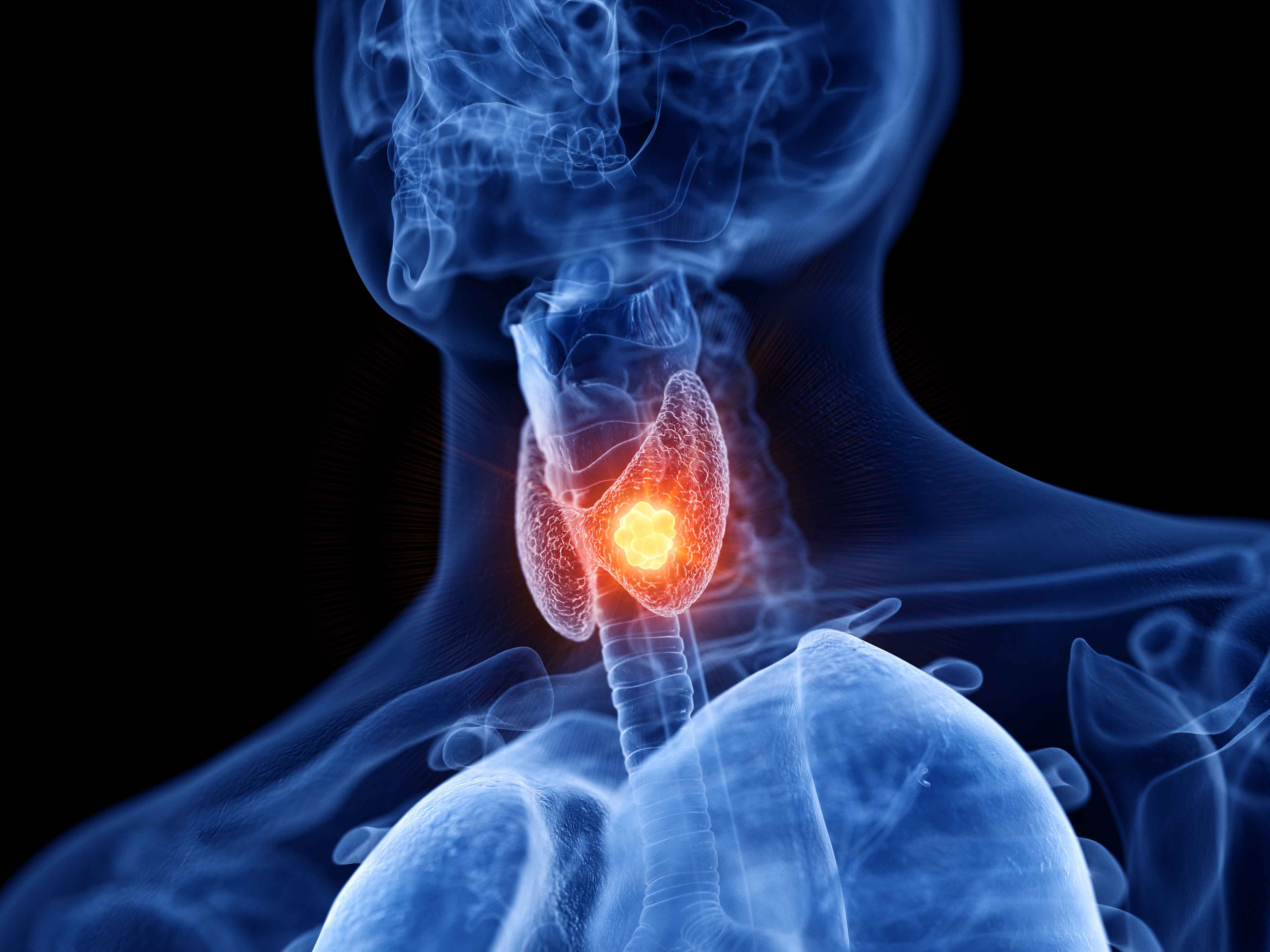By: Sue Perbody
The thyroid is a large ductless gland in the neck that secretes hormones regulating growth and development through the rate of metabolism. There are multiple types of thyroid diseases out there today. Some of these include Graves’ Disease, Hyperthyroidism, Hypothyroidism, and Thyroiditis. Each of these has a specific effect on the human body.
Hyperthyroidism is a condition in which the thyroid gland is overactive and makes excessive amounts of hormones. When the thyroid gland is overactive, the body’s processes speed up. You may experience such symptoms as nervousness, anxiety, rapid heartbeat, hand tremors, excessive sweating, weight loss, and sleep problems. Hyperthyroidism can be treated with medications used to block the production of thyroid hormones. The choice of your treatment plan will depend on your underlying symptoms and their severity. The most common cause of hyperthyroidism is a condition known as Graves’ Disease.
Grave’s Disease is an autoimmune disease that causes the thyroid gland to overproduce thyroid hormones. This disease can run in the family and is more commonly found in women. In Graves’ Disease, your immune system creates antibodies that increase the size of the thyroid, and force your body to make more thyroid hormones than what is expected. These antibodies are simply known as TSIs, and they bind to thyroid receptors. The receptors are normally docking stations for thyroid hormones. The TSIs trick the thyroid into producing too much of the thyroid hormone, ultimately leading to hyperthyroidism.
Hypothyroidism is a condition in which the thyroid gland does not produce enough hormones to maintain proper metabolism. It is estimated that 10 million Americans are likely to have this medical condition. My mom has suffered from hypothyroidism for 24 years. She takes hormones daily to reach a neutral hormone level. Before being diagnosed with hypothyroidism, she was diagnosed with Graves’ Disease and had to be in the hospital for 5 days. Upon settling her thyroid, she began treatment for her now smaller thyroid. She describes her hypothyroid experience as being cold a lot, as well as gaining weight. This goes to show that there are many causes of hypothyroidism. The most common cause of hypothyroidism comes from autoimmune thyroiditis.
Autoimmune thyroiditis is the most common thyroid disorder in America. It affects 14 million people in the United States. Being an autoimmune disease, that means immune cells attack healthy tissue instead of protecting it. Under these circumstances, immune cells attack healthy thyroid tissue and cause inflammation. This disease affects women more commonly than men, and women are also 7 times more likely to contract thyroiditis. Once the thyroid starts being attacked, it impairs its ability to produce thyroid hormones. Under some circumstances, the thyroid becomes so inflamed that a goiter develops. Goiters are enlarged thyroid glands that come from the swelling of a thyroid or multiple growths on the thyroid.
The thyroid is a large ductless gland in the neck that secretes hormones regulating growth and development through the rate of metabolism. There are multiple types of thyroid diseases out there today. If you are experiencing any of the symptoms we have listed, please seek medical attention from your primary care physician.

